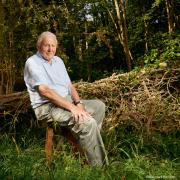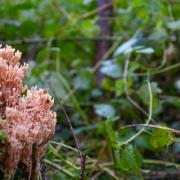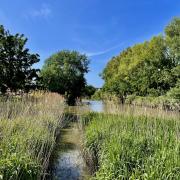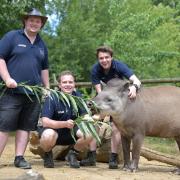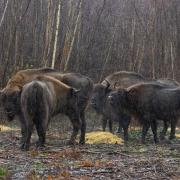Find out how Kent land managers are preparing our landscapes and making changes to the rural economy as we face an environmentally uncertain future. Words by: Allan Buckwell
The flooding in many areas of the UK this winter, together with coverage of the UN Conference on Climate Change in Paris in December, has focused attention again on how we must adapt to meet an environmentally uncertain future.
While grand summits are vital in setting and coordinating international policy, change will only happen when all citizens and businesses are engaged. Farmers and landowners have a special and important role to play in tackling the causes and effects of climate change.
The rural economy is particularly sensitive, as land-based activities depend directly on climate conditions. Many landowners and farmers in Kent and across the UK are already making a contribution to creating a more sustainable future and a secure supply of food, through changing the way they work and the crops they grow.
A recent report by the European Landowners Organisation demonstrated how the everyday work of farmers and landowners in seeking to maintain and increase soil carbon levels and capturing carbon from the atmosphere in woodlands and forests is critical to mitigating changing climate impacts. It also shows the adaptations required to keep food-supply chains reliable and the rural economy prospering.
The CLA represents landowners, farmers and rural businesses across England and Wales and we are very aware of the measures our members and the wider rural community are taking to adapt to a changing climate. Here are nine ways.
- Reducing greenhouse gas emissions: through precision farming, rotating crops with nitrogen-fixing legumes, reducing inputs such as fertilisers, using anaerobic digestion to treat farm and animal wastes and produce biogas.
- In Kent some fruit growers are using hydroponic technology to reduce soil use and building more advanced energy-efficient storage units so that crops such as apples can be available from local growers throughout the year.
- We are seeing more knowledge-intensive farming techniques which reduce soil disturbance and help farmers target fertiliser where it is most needed, rather than applying it uniformly across the whole field. This reduces costs, boosts yield and reduces harmful impacts on the environment.
- Conserving carbon: by low-tillage or no-tillage farming, which reduces the oxidation of soil carbon by encouraging sustainable woodland management and adjusting to shifts in the distribution of pests and diseases.
- Creating new woodland is one of the most effective ways of carbon storage, but it also helps make our rural landscape more resilient to extreme events. Trees slow water runoff and increase water absorption, preventing soil erosion, alleviating flooding and improving water quality.
- Replacing fossil fuels: through using energy crops, forest biomass and manure to produce biofuels and biogas, managing our forests sustainably to increase growth.
- Maintaining water resources: by investing in farm water storage, applying sustainable drainage systems, using effective irrigation methods and adapting crop rotation to make the best use of available water.
- Providing ecosystem services: through creating wildlife migration corridors, conserving grassland, maintaining, restoring and creating wetlands, ponds and water meadows and monitoring and controlling alien species.
- Increasing diversification, applying environmental land management to enhance rural tourism, diversifying energy supply and reducing energy use and applying speculative planting to minimise yield variability.
Find out more
The Country Land and Business Association is the membership organisation for owners of land, property and business in rural England and Wales. Allan Buckwell is Chairman of the CLA’s Kent branch
If you would like to know more, have a look at the CLA’s Talking Climate Change blog www.talkingclimatechange.wordpress.com.












